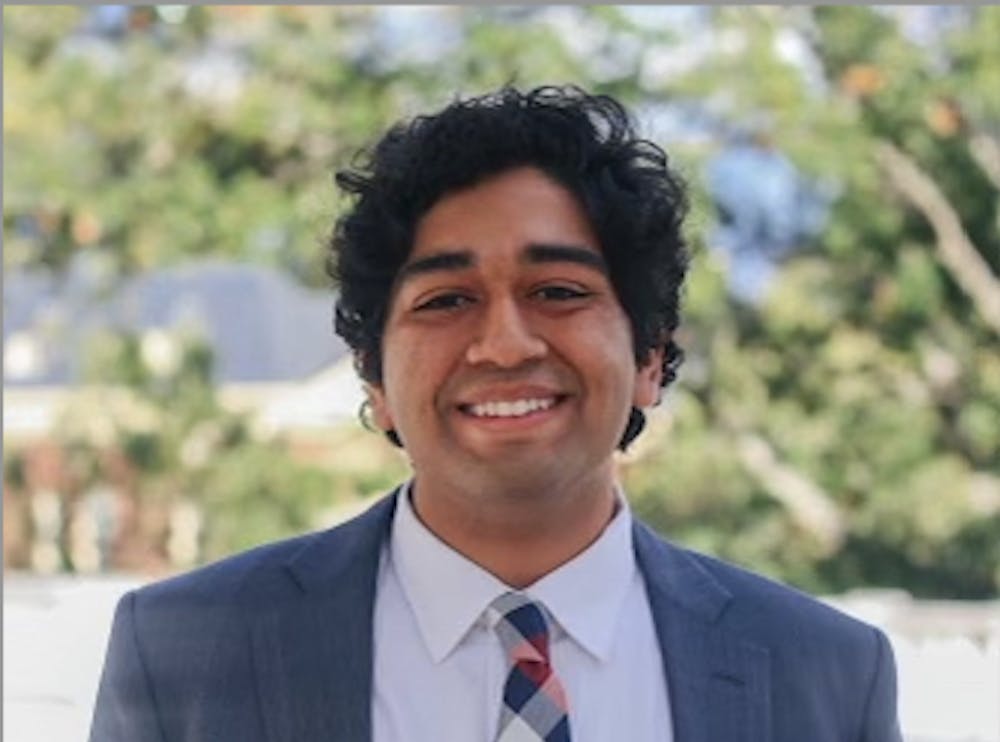Third-year College student Nabeel Raza plans to strengthen the relationship between the University Judiciary Commmittee and the student body through increased transparency and a commitment to restorative sanctions as the newly-elected chair of UJC.
Raza was reelected as a UJC representative during the University-wide elections in March. UJC later held internal elections Mar. 27, when Raza was elected chair.
UJC aims to facilitate a community of respect, safety and freedom through investigations of alleged violations of the Standards of Conduct, standards outlining behaviors forbidden to University students.
After joining the UJC as a first-year, Raza worked on the executive committee as the chair of the First Year Judiciary Committee, the group overseeing all operations and reviewing complaints. During his time with the group, Raza grew further inspired by UJC’s potential to create a safer and stronger community at the University.
“As I learned more and more I realized how powerful of a tool it could be, and how if the student body were to truly appreciate it and use it and understand sort of the mission and how it can be better and how it also represents a form of judiciary process that we don't really see anywhere else at the University,” Raza said.
Raza served as vice-chair for sanctions this past term and strove to amplify the UJC’s mission by creating restorative sanctions that focus on rehabilitation rather than punishment. He also helped organize the Diversity and Inclusion subcommittee — a group dedicated to gathering internal demographic data and creating an inclusive environment within UJC.
“The UJC is not very diverse at the moment, as our internal demographics show, and that both stems from and contributes to a lack of trust between the UJC and the community,” Raza said.
In an additional effort to increase transparency and build the UJC’s relationship with the student body, Raza worked to create an organizational case report outlining cases against student organizations in the past decade.
The report revealed summaries of the 20 cases, the majority of which involved fraternity and sorority violations of public health policy during the COVID-19 pandemic.
Raza said he intends to release another case report at the end of this semester and to stay in close communication with student groups about how they can improve their bylaws and internal processes.
Hoping to check in on how important organizations are improving transparency with the student population, Raza commented that he planned on meeting with key stakeholders in organizations like the Inter-Fraternity Council, the Inter-Sorority Council, the Student Council and the Master Planning Council.
“It's going to be interesting seeing how we can take that visibility and we can recognize areas of mistrust and try to heal them,” Raza said.
Looking forward to his upcoming term as chair, Raza discussed his goals to continue aligning the UJC with its central purpose, which he described as a “restorative body.” He referenced creative sanctions such as reflective essays and community presentations intended to facilitate personal growth.
“The biggest question is, ‘what's next?’” Raza said. “What can we do for this organization or student? What can we require them to do that will help the community and them heal from this experience and also prevent future violations?”
Through such individualized sanctions intended to benefit the community, Raza explained his hopes of strengthening the trust between the UJC and the student body.
“I think the UJC is not necessarily trusted by the community, and that's completely understandable, both because of our history and because of the nature of the university and its treatment of marginalized communities,” Raza said. “So I think building that trust and helping others understand that we are one completely student run and receptive to input and also we seek to, again, have a restorative model and not a punishment model, would help reestablish this trust.”
Raza will be coming into the role following fourth-year College student and current UJC Chair Lauren Kim, who described the theme of her goals during her term to be “restoration and longevity”. After his time working on the executive committee with Kim, Raza said that he draws inspiration from Kim’s ability to think long-term and build the UJC’s institutional status. He aims to continue her goal of promoting the UJC and emphasizing its potential to create lasting impacts on the climate of the University.
“I see the UJC as one of the most direct forms of student self-governance.” Raza said. “We're able to be more adaptable than other organizations like honor, and we in many ways demonstrate in real time what the university community values.”







